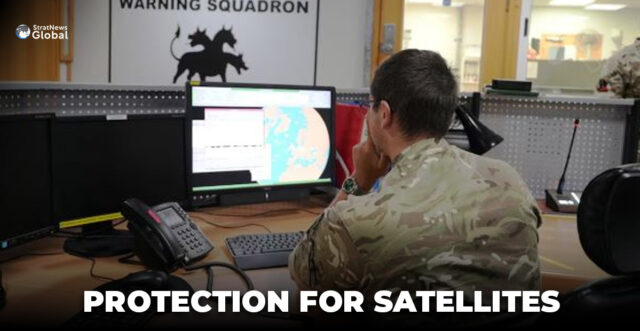The UK government announced on Friday that it is developing sensors designed to defend satellites from hostile attempts to disable them with lasers or disrupt their communications.
The Defence Ministry added that the sensors will be deployed on both military and commercial satellites, forming part of the UK’s new space strategy.
The government said it will spend about £500,000 ($672,750) on the project, which involves UK Space Command and the UK Space Agency.
A UK-government commissioned security review published this summer said Britain urgently needs to bolster defences for military space systems as adversaries improve their own abilities to attack in space.
The Strategic Defence Review called for Britain to invest in its own space attack capabilities, along with intelligence and navigation networks as well as satellite communications.
Militaries depend on satellites for communication, surveillance, and guidance data for troops, warships and weapons. Without their space assets, Western militaries “can’t effectively understand, move, communicate, and fight,” General Paul Tedman, head of UK Space Command, said on Wednesday during a visit to the RAF Fylingdales radar station.
Hostile Space Activities
European and other Western military space officials are warning about increasing hostile activity in space that could disrupt the operations of ground and sea forces.
“You’ve got to be able to protect your systems in space,” Tedman said at RAF Fylingdales, which provides missile warning and space surveillance to the United States and Britain.
While the U.S. dominates government spending on space globally, France and Germany were Europe’s two largest spenders on space last year, according to France-based consulting firm Novaspace.
Last week, Germany’s defence minister warned about a growing threat posed by Russia and announced Berlin would invest 35 billion euros ($41.09 billion) over the next five years on space security.
France’s space-related initiatives include leading a 1.5-billion euro investment in Eutelsat, a French rival to Elon Musk’s Starlink satellite communications service.
(With inputs from Reuters)





